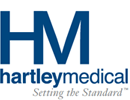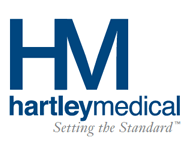Did You Know that some states are making regulatory changes in an attempt to lessen the possibility of another compounding pharmacy-related tragedy similar to the recent fungal outbreak that sickened 693 people and killed 45?
In California, the Board of Pharmacy will be seeking the Legislature’s approval for new authority and additional staff to conduct random site inspections of non-resident pharmacies that compound high-risk sterile products for medical professionals and pharmacies within the state.[1] In Massachusetts, the state where the compounding pharmacy linked to the fungal outbreak is located, legislation is being proposed to increase penalties for compounding pharmacies that violate state rules, and, for the first time, require a Massachusetts license and proof of regular inspections for all non-resident pharmacies that do business in the state.1 Additionally, the Iowa Board of Pharmacy has issued charges against five out-of-state compounding pharmacies following inspections by National Association of Boards of Pharmacy (NABP) and, by the end of 2013, NABP inspectors are expected to visit all 582 licensed nonresident pharmacies.1
With all of the regulatory changes being pushed into legislation, it is important that physicians and their patients are not affected by the changes being implemented. This means that more thorough due diligence must be performed. All compounding pharmacies will have to make changes of some form or another. The only way to mitigate these changes is to know that you are working with a pharmacy that already meets and exceeds current mandates.
William Stuart, RPh ““ President of Hartley Medical ““ recommends that (at the very least) medical professionals ask the following five questions to their compounding pharmacies:
- How many years of experience does your company and its primary compounding staff have in compounding sterile products (of all risk levels)? A large number of compounding pharmacies have arisen over the past 5-10 years; and though many of them may contain highly qualified pharmacists, there is no substitute for experience. Working with compounding pharmacies that have many years of experience could mean that they have more data to support dosing recommendations, beyond use dating, maximum concentrations, and sterility results. This being said, do not simply assume that those that have been around are, automatically, operating at a higher level. Ask the right questions and for data to support claims.
- Describe your staff training and continual assessment programs. The need for more knowledge and training never ends. Advancements in technology, changes in regulation, and verifying that staff is following procedures are all important reasons to continually increase staff knowledge through training and assessment programs. Make sure that your compounding pharmacy is meeting or exceeding regulatory mandates regarding this topic.
- Do you have a dedicated environment for sterile compounding? Please describe. If a compounding pharmacy does not have a dedicated environment for sterile compounding, leave. Do not risk your patients’ lives and put your reputation at risk for a pharmacy that is not up to the level it needs to be. However, simply having a sterile environment is not enough. Be sure to ask questions, such as: Is your clean room properly designed? What is the cleaning program and how often is it employed? What Environmental Monitoring is performed? Etc. It is best to ask these questions in person while performing a site visit. You can learn a lot about your pharmacy/pharmacist by watching his or her reaction to questions and listening to the tone of his or her voice.
- Describe your quality assurance programs: staff, aseptic technique, preparations, environment, etc. Quality is paramount. It is important to verify that compounding personnel are properly gowned and follow proper sanitation (hand washing and gloving) procedures, etc. Be sure to ask if the compounding staff members are subject to aseptic testing through fingertip assessments and clean room surface testing. Is the sterile environment properly monitored utilizing advanced technologies that detect potential bioburdens in the air? Are random product samples taken and analyzed to verify concentration and sterility? Are samples tested in house, outsourced to a lab, or both? There is significant due diligence that needs to be performed in regards to this question. What is mentioned here only touches the surface of what needs to be asked. For more information, please read Hartley Medical’s FAQs for Researching Compounding Pharmacies document by clicking here … and, supplement our FAQs with the International Academy of Compounding Pharmacists’ Compounding Pharmacy Assessment Questionnaire.
- Check references! Your sterile compounding pharmacy should provide you with a list of references, either voluntarily or by request. Even if a pharmacy presents well during the consultation phase, this is not always reflective of their future performance. Reference checking allows you to understand the advantages that come from choosing a particular pharmacy – and sometimes the disadvantages. Pharmacies that overplay their features and benefits can often be exposed during this process.
Many changes will be coming this year and in the years ahead. Hartley Medical is ready for these changes. Throughout the years, Hartley Medical has been an advocate of choosing to work only with compounding pharmacies that operate at the highest of quality levels to ensure patient safety “¦ and we are proud to say that we are one of those pharmacies. Change is always difficult “¦ but it must be done when the time is needed. You can count on Hartley Medical to Set the Standard.
Click the video image below to listen as William Stuart, RPh – President of Hartley Medical – gives his comments on USP <1116> Microbiological Control and Monitoring of Aseptic Processing Environments.
[1] Buckley, Bruce & Joan. “Is the Compounding “˜Denial Coma’ Over?” Pharmacy Practice News. February 2013: Volume 40.


Leave A Comment